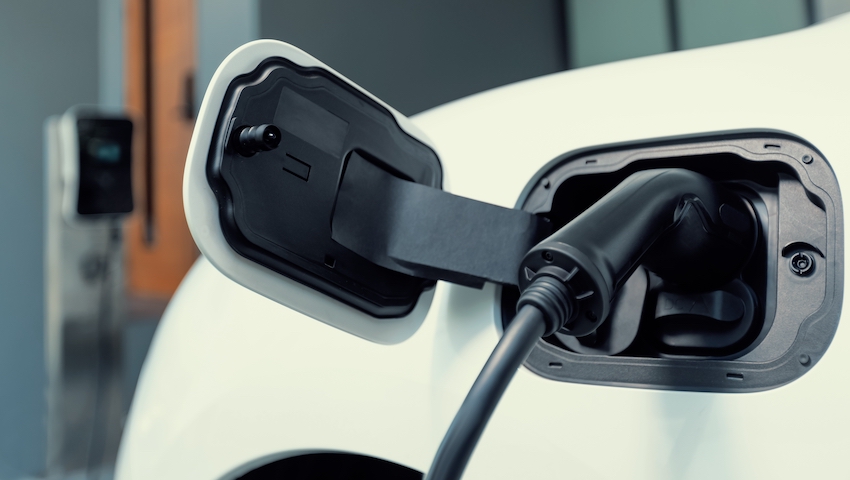EV owners told how to reduce battery deterioration this summer
Electric car drivers have been urged to take extra care throughout the summer as the rising temperatures are likely to ruin batteries.
EV experts at LeaseElectricCar.co.uk have told motorists how to best look after their vehicles during the warmer months to prevent their batteries from becoming damaged.
Lithium-ion batteries found in EVs do not react well with extreme temperatures, and because of the heat, they’re more likely to decline faster and have a reduced lifespan.
This may mean EV owners have to replace their expensive batteries more often than the average 10-20 years.
Exposure to heat over time will cause the performance of batteries to deteriorate and therefore reduce a car’s range, and increase charge times.
Using air conditioning during the summer months will further reduce electric vehicle range with many drivers unaware that turning on the air con can will reduce the driving distance of EVs by up to 15%.
The average EV range is estimated to be around 211 miles so using air con while driving has a significant impact on range, reducing it by 32 miles to 179 miles for the average EV.
There are several things EV owners can do to take extra care of their cars throughout the summer to help prevent batteries from deteriorating.
Not using rapid charge points and only charging once the car has cooled down, will stop the battery from overheating and keep the temperature regulated.
Parking in the shade or inside a garage as often as possible is also an effective way to cool down the vehicle during the summer months.
Tim Alcock from LeaseElectricCar.co.uk said: “The lithium-ion batteries found in EVs will likely overheat if owners are not careful when the temperatures are getting hotter.
“It’s best to get into these habits to preserve your electric car battery and help extend its lifespan, instead of leaving it to overheat and run the risk of deteriorating the battery.
“Drivers should be mindful about parking in the shade, especially during the hottest hours of the day, or park up inside a garage. Also avoiding charging in the middle of the day will help keep the battery temperature regulated.
“Only charging up to 80% during the summer can stop cell degradation – where the battery loses the capacity to reach a full charge again. Air con can reduce the range of electric cars, so rolling down the windows instead will still keep the car cooler, but prevent any travel issues.”
Here are LeaseElectricCar.co.uk’s tips on protecting EV’s in the summer:
- Only use air con when it’s needed
Research shows that turning on the air con can reduce the range of electric cars by up to 15%. This can be a massive issue for summer road trips – a 100 mile journey could only cover 85 miles in the heat. Only use the AC when it’s really necessary; instead keep the windows down or use a damp cloth over the vents to blast colder air.
- Avoid rapid charging
Rapid charging may be the most efficient way to charge up EVs, but frequently using the faster option might be having a detrimental effect on the battery. Choose slower charge points where possible throughout the summer months as the accelerated electrical waves alongside extreme temperatures could be damaging the battery in the long run.
- Find the shade
Be mindful about where to park EVs during the heat, as overexposure in the sun will start to ruin the lithium-ion batteries. Find the shadiest spot in a car park underneath trees or beside a lorry. Homeowners with a garage should park their electric vehicles inside to reduce exposure to the sun rays.
- Only charge to 80%
Most manufacturers actually recommend EV owners to avoid charging their cars up to full capacity. Charging to 100% can cause the battery to get really hot, and combined with high temperatures outside, may result in cell degradation. This is where the battery loses the ability to charge at the original rate.
- Don’t charge up after parking
Drivers may naturally plug in their vehicles after parking up, but in the hot weather it’s recommended to let cars cool down for a couple of hours before charging. To help extend the battery’s life, waiting until the temperature regulates again is important, especially with the warm weather also being a contributing factor.
- Charge at the right time
Similarly to waiting until the car cools down, pick the best time to charge up vehicles to avoid the outside heat throughout the summer. Avoid charging during the hottest hours of the day – which is usually between 11am and 3pm. Plugging in when the temperature is cooler will not only keep the battery regulated, but also saves money when using electricity at off peak times, such as overnight.
